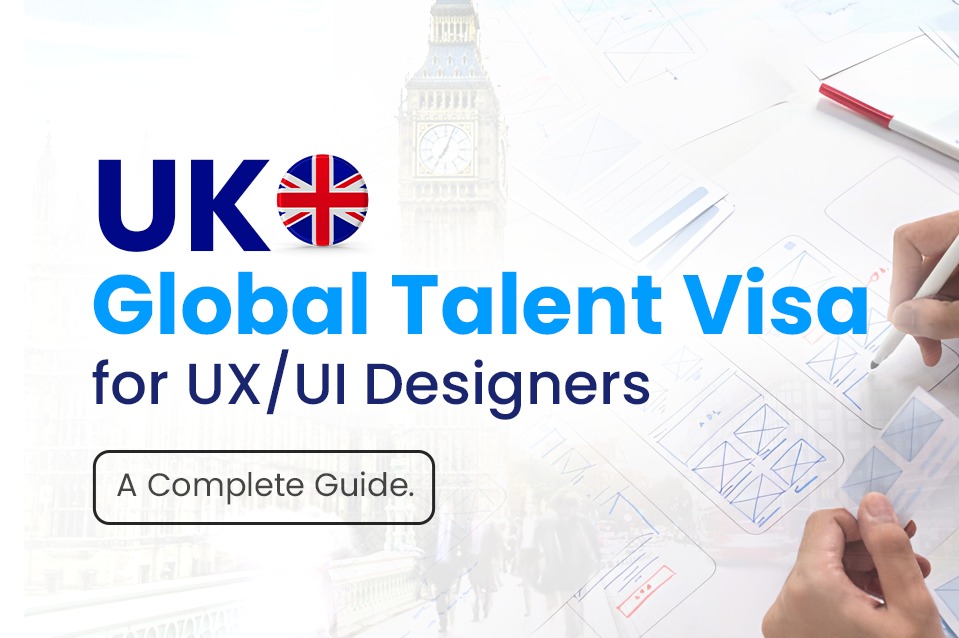
Introduction:
For UK immigration, when you apply for the position, you need to attach a CV and send it. You wait and wait, but nothing. Your inbox is calmer than Brighton Pier on a damp December afternoon. So, what's the matter? Every job posting gets dozens of candidates, and recruiters will only choose the ones that will stand out in the pool of applications. So, how can you draft a CV that will get you called in for an interview? Every CV is unique since you want to demonstrate why your abilities qualify you for the position you're seeking at the time, but they all follow a similar format. However, we have addressed all of the difficulties that you may encounter when creating the ideal CV. This article will provide essential tips for writing an excellent CV ready for hunting for a job in 2022 and beyond in the UK.
Curriculum Vitae (CV): What is it?
A curriculum vitae, often known as a CV, is used when applying for jobs. To sell yourself to potential employers, you can summarise your credentials, skills, and experience. Employers frequently need a cover letter in addition to your CV. In the United Kingdom, a standard CV should not exceed two sides of A4 sheets. However, there is no such thing as a one-size-fits-all solution. A fresh graduate with little experience, for example, may need to use one side of A4. A three-page CV may be required for those with a high level of expertise or have worked in various firms in the last five to ten years. Detailed medical or academic CVs maybe longer, depending on your experience. While it is crucial to keep your CV brief, you should avoid selling your experience short. Only mention the most important aspects of your education and experience to conserve space. Stick to pertinent details and avoid repeating what you said in your cover letter. If you're having trouble editing your CV, consider whether particular details sell you. If it doesn't work, remove it. If it isn't relevant to the position you're going for, eliminate it, and if it's a piece of outdated information from 10 years ago, summarise it.
Writing a Good CV:
A strong CV is free of errors in spelling and punctuation. Make use of a spell checker and ask the help of the second set of eyes to go through the completed document. Include terms like ‘developed,’ ‘analysed,’ and ‘devised,’ for example, to portray oneself as a self-starter. Avoid overused buzzwords like ‘team player,’ ‘hard worker,’ and ‘multitasker.’ Instead, give instances from real-life situations that exhibit all of these abilities. Study the company’s website and social media accounts, check if they’ve been covered in the local paper recently, and utilise the job advertisement to ensure your CV is tailored to the position and employer. Create a CV that matches your current employment or academic status. Make sure to have a professional email ID and if you don’t have one, then create one! On your CV or job application, don’t lie or exaggerate. You will not only be demonstrating your dishonesty to a potential employer, but you may also face significant consequences. For instance, changing your degree grade from a 2:2 to a 2:1 is considered a degree fraud and can result in a prison sentence. If you’re going to put your CV online, don’t include your home address since scammers could target you. Always add a cover letter unless the employer asks otherwise. You will be able to customise your application using it. You can highlight a specific section of your CV, identify a disability, or explain gaps in your job history.
What Should your CV Include?
While a CV’s format is adaptable to your skillset and experiences, there are some components that employers want to see on every CV. Your CV must include the following components:
- Contact Information: Include your full name, home address, phone number, and email address. Your birthdate is entirely irrelevant, and you don’t need to attach an image unless you’re looking for an acting or modelling job.
- Profile/Summary: A CV profile/summary is a brief statement that emphasises your essential skills and distinguishes you from the competition. It’s usually seen at the top of a CV and highlights a few key accomplishments and talents while expressing your professional goals. Your cover letter will be job-specific, so an excellent CV profile will focus on the industry you’re planning to apply to.
- Educational Qualifications: All past education must be listed and dated, including professional degrees. Put the most current at the top. Mention specific modules only when they are necessary.
- Professional experience: In reverse chronological order, state your work experience, ensuring that everything you include is relevant to the position. Include your formal title, the name of your organisation, how long you’ve been there, and any essential duties. This part should appear before schooling if you have relevant job experience.
- Skills and accomplishments: This is where you list any foreign language you know and the computer programmes that you can use fluently. You should include vital abilities that are relevant to the position. Don’t oversell your skills because you’ll have to back up your statements during the interview. A skills-based CV is an attractive choice if you have several job-specific talents.
- Interests: ‘Going to the movies,’ ‘socialising,’ and ‘reading’ will not pique a recruiter’s interest. On the other hand, mentioning relevant hobbies may help paint a more comprehensive picture of who you are and give you something to talk about during an interview. If you want to be a journalist, you can write your blog or community bulletins, or if you want to work in the environmental industry, you can get involved in various campaigns associated with climate change activism. Don’t mention this section if you don’t have any relevant hobbies or interests.
- References: At this point, you do not need to submit the names of your referees. You can say ‘references available upon request,’ but most employers would assume this, so you can leave this out if you’re short on space.
Correctly Formatting and Spacing a CV:
If you’re not sure how to structure your CV, it’s a good idea to start by going through a few CV templates. After all, your CV’s layout and space are just as vital as its content. Here are some formatting and spacing suggestions to consider:
- Heading: Each part must be introduced by a large and bold heading for easy reading.
- Type of Font: Choose a clear typeface like Calibri, Ariel, Bookman Old Style, Times New Roman, or Verdana because most companies will get your CV in digital format. You can choose a different font type for your headlines, but keep it professional and simple to read.
- Page margins and font size: Use a 10-to-12-point font for your CV’s body and a 14-to-18-point font for the headers. To avoid making the CV cluttered and hard to read, maintain page margins of 2.5cm or less, but never less than 1.27cm. Remember, white space promotes professionalism and clarity.
- Proofreading and consistency: Ensure the formatting is consistent throughout to keep your CV looking professional. Don’t let typos and errors ruin your professional appearance; proofread like an expert to catch every mistake, or invest in clever spellcheckers like Grammarly.
- Customisation, Applicant Tracking Systems (ATSs), and Keywords: It’s fine to maintain a generic copy of your CV for your records, but it must be customised to the position if you’re applying for a job. This will not only demonstrate to employers why you’re a good fit, but it will also assist your application to defeat the ATS robots.
- Saving and naming the file: You’ll most certainly send your CV by email or via a job board like CV-Library. Recruiters will be able to open your CV on any device if you save it as a PDF file. Because a PDF file preserves the formatting, you can be sure that companies will read your CV the way you intended. And always name the file in format so that recruiters can easily find you through the clutter of submitted CVs.
What mustn’t you include in your CV?
There are some details on your CV that you should not mention. Here are a handful of points that you must avoid:
- A picture of yourself: In many countries, including a photo of yourself on your CV is standard practice. However, the UK is not one of them.
- Date of birth and age: The only dates on your CV should include those from your work and education. Your age has no bearing on your ability to perform the job, and the Equality Act of 2010 makes it illegal for employers to inquire about your age.
- Civil Status: Your marital status and dependents, like your age, have no bearing on your ability to perform your work. Employers cannot inquire about this information since they are protected attributes under the Equality Act 2010; therefore, don’t mention them on your CV.
Filling the Gap Left by the COVID-19 Pandemic:
The first thing to realise is that COVID-19 has thrown almost every individual's career plans off, and you're not alone. Career-enhancing activities such as work experience, internships, and volunteering have been postponed or cancelled due to the Pandemic. If this has made you concerned about the Corona-shaped gap on your CV, don't worry, we've got you covered. Employers are fully aware of the difficulties that lockdowns have brought, and they will not expect you to have completed any work experience during this time. Nonetheless, you may show potential employers how you spent this time productively, demonstrating that you are a proactive, devoted, and resilient applicant for the position. You may mention something like:
- Specifics of any online courses you've taken, as well as any webinars or online events you've attended to learn new skills, such as learning a language or coding
- Volunteering work - perhaps you got involved with fundraising or raising awareness for a particular organisation by checking in on and shopping for vulnerable neighbours or caring for young siblings or elderly relatives.
- Volunteering work - perhaps you got involved with fundraising or raising awareness for a particular organisation by checking in on and shopping for vulnerable neighbours or caring for young siblings or elderly relatives.
- New activities, such as recording a vlog, learning to cook, taking up an indoor activity, or organising a neighbourhood book club Remember that you'll need to link these activities to the position you're looking for, so concentrate on the abilities you learned and how/why you'd use them.
The placement of this information is determined by the actions that have dominated your career. Volunteering or charitable work might be classified under the topic of 'Work experience.' Online courses and further qualifications should be kept in the 'Education' part, while any new skills you might have learned should be kept in the 'Skills and Achievements' section. If you have any unique hobbies relevant to the job you're looking for, include them under the 'Hobbies and interests' part. While applying for any UK Immigration route, CVs in English-speaking nations are generally similar. Each country has its unique quirks that must be considered for the best outcomes. Pay attention to the special criteria of each employer while writing a UK CV, and if necessary, our Career Consulting services can help you build a compelling CV that would be difficult for employers to miss. Having your CV crafted to the market needs by experts will assist you in finding a job faster. Your CV is your opportunity to create a positive first impression and land an interview with a potential employer. Contact us to improve your prospects of finding a job in the UK.







